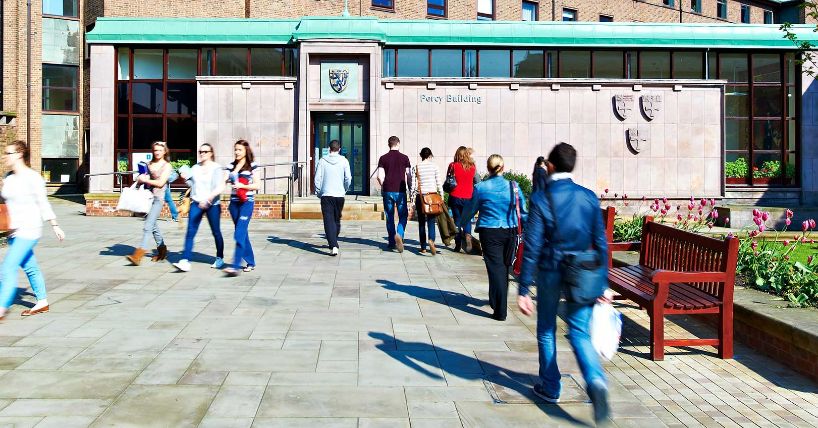Staff Profile
Dr Natalia Pavlovskaya
Research Associate and Associate Lecturer
- Email: natalia.pavlovskaya@ncl.ac.uk
- Address: School of English Literature, Language and Linguistics
Percy Building
Newcastle University
Newcastle upon Tyne
NE1 7RU
I am currently an Associate Lecturer in Linguistics in the School of English Literature, Language and Linguistics (SELLL) and a Research Associate on the BulBul project, led by Prof Ghada Khattab, within the School of Education, Communication and Language Sciences at Newcastle University. I completed both my PhD and Master’s degrees in Linguistics at SELLL with distinction. Prior to that, I earned a specialist degree in modern foreign languages, alongside qualifications of a translator and interpreter in English, Mandarin Chinese, and Russian. As part of my degree’s exchange programme, I studied at Durham University, and in China.
My primary research interests are centred around language acquisition, with a focus on both first and subsequent language learning. I employ psycholinguistic methods in my work, and I have a special interest in the role of input in language development, as well as in the impact of the cognitive processes involved in early language processing -- especially in perception, speech segmentation, and the learning of early words and syntax.
I also serve as the Web Administrator and External Relations Officer for the Linguistics Association of Great Britain and Northern Ireland (LAGB).
I have taught a range of modules in language and linguistics in SELLL
In 2023/24 I help with the following modules:
First Semester:
SEL1008 : Nature of Language
SEL1027: Introduction to the Structure of Language (Phonology).
Second Semester:
SEL1028: Introduction to the Structure of Language (Morphology and Meaning).
SEL1032: Language Variation and Change: Dealing with Data.
For 2024-25, my office hours are on Tues 12.00-13.30.
My research primarily focuses on the role of input in language acquisition, specifically how language learners begin to segment an unfamiliar natural language and attach meanings to the segmented words. I am particularly interested in understanding the mechanisms that could guide early word detection following initial exposure to an unknown language -- an area that remains surprisingly under-explored within the field of second language acquisition. My work is inspired by studies in first language acquisition and artificial language learning, which have significantly influenced my research methodology. Additionally, I have a strong interest in heritage bilingualism and have recently begun exploring the processing mechanisms of receptive bilinguals using a range of psychometric techniques.
Throughout my time in linguistics, I have continually been amazed by the remarkable capacity of human language. The ways in which language is known and used to navigate the world never cease to captivate me. I often find myself reflecting on my own journey with language, particularly the fact that English is my second language -- a language I began to learn only in my late teenage years. Today, I work with English daily, a reminder of the incredible adaptability of human language and the profound impact it has on both personal and professional development!
-
Article
- Pavlovskaya N. Mimicking language acquisition “in the wild” online: What do non-speakers of English can acquire about English after brief exposure to it on-line, and whether it resembles English acquiring children?. 2024. In Preparation.
-
Book Chapter
- Pavlovskaya N, Riches N, Young-Scholten M. First Exposure to Russian Word Forms by Adult English Speakers: Disentangling Language-Specific and Language-Universal Factors. In: Hracs L, ed. Perspectives on Input, Evidence, and Exposure in Language Acquisition: Studies in honour of Susanne E. Carroll. Amsterdam: John Benjamins, 2024, pp.191-224.
-
Conference Proceedings (inc. Abstract)
- Pavlovskaya N, Jarad S, Leung AH-C, Young-Scholten M. What do adult learners know about phonology after minimal exposure?. In: 46th Annual Meeting of the British Association for Applied Linguistics. 2013, Edinburgh, UK.
-
Editorial
- Leung AH-C, Pavlovskaya N, Young-Scholten M. Investigating L2 Phonological Acquisition from Different Perspectives: An Introduction to the Special Issue. Languages 2025, 10(1), 3.
